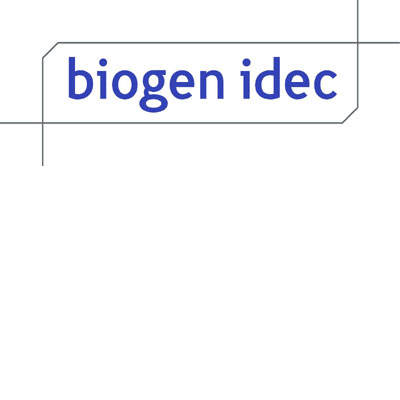Oral BG-12 (Dimethyl Fumarate) significantly reduced multiple sclerosis (MS) relapses and disability progression
Posted: 21 October 2011 | | No comments yet
Phase 3 clinical trial demonstrated significant clinical effects…


Today Biogen Idec (NASDAQ: BIIB) announced positive data from the Phase 3 DEFINE clinical trial of oral BG-12 (dimethyl fumarate) in people with relapsing-remitting multiple sclerosis (RRMS). Results showed that 240 mg of BG-12, administered either twice a day (BID) or three times a day (TID), significantly reduced the proportion of patients who relapsed by 49 percent and 50 percent, respectively, at two years compared with placebo. Detailed data from DEFINE will be presented at the 5th Joint Triennial Congress of the European and Americas Committees on Treatment and Research in Multiple Sclerosis (ECTRIMS and ACTRIMS) in Amsterdam, including a platform presentation on Friday, October 21, 2011 at 9:30 a.m. CEST.
“The significant clinical and radiological responses in DEFINE are further evidence that BG-12 may become an oral therapy of choice for MS patients,” said Doug Williams, Ph.D., Biogen Idec’s Executive Vice President of Research and Development. “Results from our second Phase 3 trial, CONFIRM, will provide additional insight into BG-12’s profile, as well as a comprehensive data set to further discussions with regulatory authorities. We anticipate releasing top-line data from CONFIRM later this year.”
DEFINE was the first of two Phase 3 clinical trials designed to determine the efficacy and safety of BG-12 in people with RRMS. Both BG-12 BID and TID met the primary and all secondary endpoints in the study. In addition to demonstrating a significant reduction in the proportion of patients who relapsed, BG-12 significantly reduced the annualized relapse rate (ARR) and the risk of disability progression as measured by the Expanded Disability Status Scale (EDSS) at two years compared to patients on placebo.
BG-12 reduced the risk of relapse by 49 percent in the BID group (HR 0.51; 95% confidence interval [CI] 0.40, 0.66; pBG-12 BID reduced the ARR by 53 percent, while BG-12 TID reduced the ARR by 48 percent (pBG-12 BID reduced the risk of disability progression by 38 percent (HR 0.62; 95% CI 0.44, 0.87; p=0.0050), while BG-12 TID reduced this risk by 34 percent (HR 0.66; 95% CI 0.48, 0.92; p=0.0128).
“BG-12 may be a valuable treatment option for MS patients, combining strong efficacy, a favorable safety profile and oral administration,” said Ralf Gold, M.D., Professor and Chair, Department of Neurology, St. Josef-Hospital/Ruhr-University, Bochum, Germany. “Preclinical research has shown that BG-12 has anti-inflammatory and neuroprotective effects. If the clinical responses seen in DEFINE are replicated in its second Phase 3 trial, BG-12 has the potential to provide a new approach to treating MS and be an important step forward for patients.”
Magnetic resonance imaging (MRI) scans were performed at baseline, 24 weeks, one year and two years to determine the number of T2 hyperintense lesions, gadolinium-enhancing (Gd+) lesions and T1 hypointense lesions (a tertiary endpoint). At two years, results demonstrated that RRMS patients receiving BG-12 experienced significant reductions in the number of brain lesions compared to patients on placebo.
BG-12 BID and TID reduced the mean number of new or newly enlarging T2 hyperintense lesions by 85 percent and 74 percent (pBG-12 BID and TID reduced the mean number of Gd+ lesions by 90 percent and 73 percent (pBG-12 BID and TID reduced the mean number of new T1 hypointense lesions by 72 percent and 63 percent (p
“The BG-12 program further demonstrates Biogen Idec’s commitment to developing innovative therapies to address unmet needs in the MS community,” continued Dr. Williams. “BG-12’s distinct mechanism of action, combined with strong efficacy and safety data, position it as a potentially valuable option for MS patients and a further growth driver for Biogen Idec.”
In DEFINE, the safety profile for the two BG-12 treatment groups was similar. The overall incidence of adverse events (AEs), serious adverse events (SAEs) and AEs leading to study discontinuation was similar among the BG-12 and placebo groups. AEs were reported by 95 to 96 percent of patients, irrespective of study group. The most frequently reported AEs across the three study groups were flushing, MS relapse, nasopharyngitis, headache, diarrhea and fatigue. Flushing (35% BG-12; 5% placebo), gastrointestinal AEs such as diarrhea (17% BG-12; 13% placebo), nausea (13% BG-12; 9% placebo), upper abdominal pain (11% BG-12; 7% placebo) and abdominal pain (10% BG-12; 5% placebo) were higher in the BG-12-combined group than the placebo group, with the highest incidence in the first month of treatment, which decreased thereafter.
SAEs were reported in 21 percent of patients receiving placebo and 17 percent of patients receiving BG-12. The most frequently reported SAE across all treatment groups was MS relapse (15% placebo; 9% BG-12). There were no deaths related to study treatment. There was no increase in infections, serious infections, opportunistic infections or malignancies.
These data will be presented in two posters and a platform presentation at ECTRIMS/ACTRIMS:
- Clinical Efficacy of BG-12, An Oral Therapy, In Relapsing-Remitting Multiple Sclerosis: Data from the Phase 3 DEFINE Trial (#95) will be presented by Professor Ralf Gold on Friday, October 21, 2011 from 9:30 to 9:45 a.m. CEST.
- Efficacy on MRI Endpoints of BG-12, An Oral Therapy, In Relapsing-Remitting Multiple Sclerosis: Data from the Phase 3 DEFINE Trial (P#831) will be available for viewing on Friday, October 21, 2011 from 3:30 to 5:00 p.m. CEST.
- Safety and Tolerability of BG-12 in the Phase 3 DEFINE Trial in Patients with Relapsing-Remitting Multiple Sclerosis (P#994) will be available for viewing on Friday, October 21, 2011 from 3:30 to 5:00 p.m. CEST.




